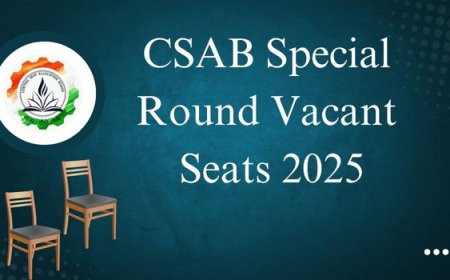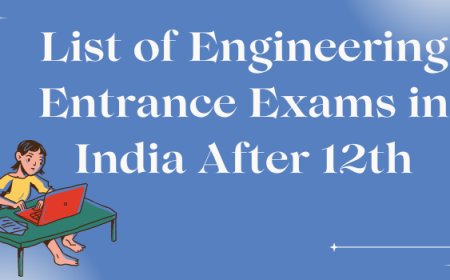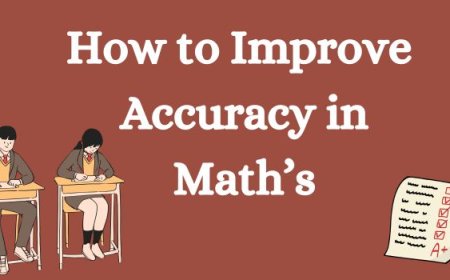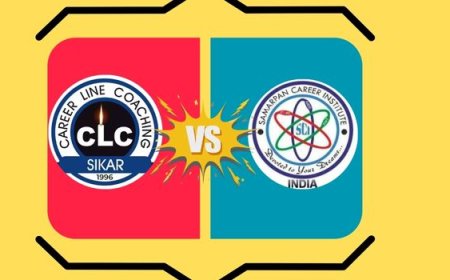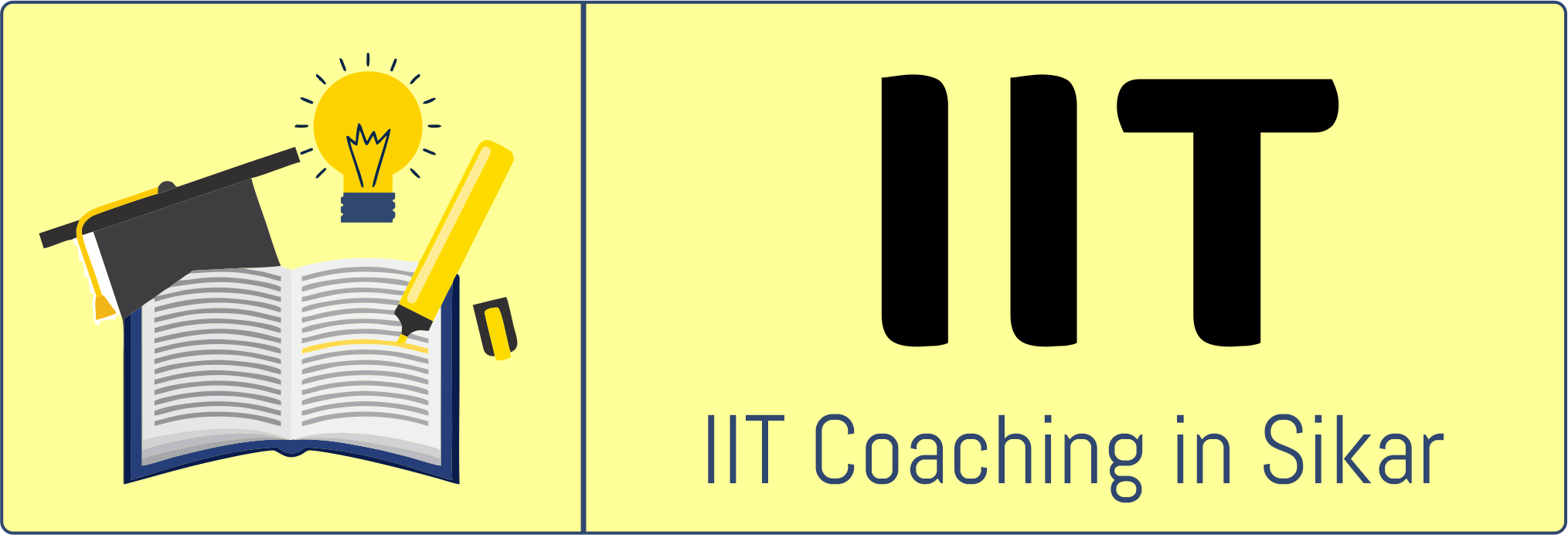JEE Mains Chapter-Wise Weightage 2026 – Physics
Check JEE Mains Chapter-Wise Weightage 2026 for Physics. Know high-weightage topics to boost your score and plan smarter for JEE Main.

JEE Mains Chapter-Wise Weightage 2026: Want to get in the JEE Main 2026 in the top percentile? Then you should start learning the chapter-wise weightage of JEE Mains-particularly about Physics, which always complicates the students because of its abstract contents and abundant numbers. It will be noteworthy to know which chapters have more marks so that you can plan the preparation process with smartness to score more in less time.
This elaborate tutorial shall give you the chapter-wise weightage in JEE Mains Physics and an understanding of JEE Main syllabus 2026, and also effective preparation strategies in order to maximize your score.
Importance of Chapter-Wise Weightage in JEE Main Physics
JEE Main 2026 Physics should have 30 questions with 20 single-choice ones and 10 numerical value questions, out of which 5 have to be answered. Physics is given 100 marks, and it is important to allocate study time on the basis of the importance of a topic. It is by examining the papers of recent years that we can know the most important chapters of Physics, which come regularly and have higher weightage. The chapter-wise division allows not only minimizing loads, but also getting accurate and improving time management in your preparation to JEE.
JEE Mains Chapter-Wise Weightage – Physics (Expected for 2026)
Through a critical examination of the past year JEE main papers, the following table represents the anticipated JEE mains chapter-wise weightage of Physics in the JEE main 2026:
|
Chapters Weightage |
No. of Questions (Expected) |
Approx |
|
Units and Measurements |
1 |
2-3% |
|
Semiconductor & Communication |
1 |
2-3% |
|
Properties of Solids and Liquids |
1 |
2-3% |
|
Gravitation |
1 |
3% |
|
Kinetic Theory of Gases |
1 |
3% |
|
Laws of Motion |
1–2 |
4–5% |
|
Work, Energy, and Power |
1–2 |
4–5% |
|
Rotational Motion |
1-2 |
4–5% |
|
Magnetic Effects of Current |
2 |
5–6% |
|
Ray Optics & Optical Instruments |
2 |
5–6% |
|
Oscillations and Waves |
2 |
6% |
|
Thermodynamics |
2–3 |
6–9% |
|
Electrostatics |
2–3 |
6–10% |
|
Current Electricity |
2–3 |
6–10% |
|
Modern Physics |
3–4 |
10–12% |
High-Weightage Chapters to Prioritize
Some chapters remain similar in form and matter. The following factors are of particular interest to the students who intend to achieve a high score:
1. Modern Physics: Majorly offers 10 and above to the Physics section. Such questions as nuclear physics, photoelectric effect, Bohr model, and radioactive decay are generally covered.
2. Current Electricity: The trick here is to know concepts such as Ohm's Law, series and parallel resistors, Kirchhoff rules, amongst others, in this high-weightage topic.
3. Electrostatics and Magnetism: They are formulated topics that give direct questions in the examination.
4. Thermodynamics: The chapter is a duplication of Chemistry, but it is an economical topic to learn two in one.
5. Optics: Ray optics and wave optics have always been presented with big weightage. One should learn about lenses, mirrors, and diffraction.
Read More: How to Avoid Negative Marking in JEE Main 2026
Smart Tips to Cover JEE Main Chapter-Wise Weightage 2026
Learn the concepts: Be more concerned about coming up with clear ideas rather than memorizing formulae.
Practice: solving numerical problems every day. Physics requires good problem-solving skills.
Read regular books: Read NCERT, HC Verma, and DC Pandey to get equal coverage.
Previous year questions: PYQs are the most suitable measure of the real exam difficulty.
Keep a formula sheet: Algebra is formula-driven, and it is a smart idea to keep a separate notebook for those formulas, which should be updated regularly.
Take mock tests: Just like in the actual testing, take full-length mock tests to allow time management.
Best Books for JEE Main Physics 2026
NCERT Class-XI and XII Physics, Principles and concepts
The Concept of Physics by H.C. Verma: Theory and Problem-Solving solving
Arihant Series Chapter-wise JEE-oriented practice DC Pandey
Previous Year Papers - To get an idea of the pattern of difficulty.
Learning JEE Main Syllabus Physics 2026
Physics topic of the JEE Main syllabus 2026 contains the subjects of the Class 11 and Class 12 curriculum. The topic will evaluate the knowledge of the students in concepts, the use of mathematics, and solving problems. The paper contains multiple-choice questions and numerical value questions.
Different topics provide the questions-Mechanics, Electrodynamics, Heat & Thermodynamics, Modern Physics, Optics, and Waves, so it is required to comprehend which of them has a greater significance.
When you direct your study plan to that of the JEE Mains chapter-wise weightage, you have goal-centered and efficient preparation.
Modern Physics, Current Electricity, Electrostatics, Thermodynamics, and Optics are the subjects that have the most expected weightage in JEE Main 2026.
Difficulty Level of Physics in JEE Main
|
Year |
Difficulty level |
|
2025 |
Moderate to Tough |
|
2024 |
Moderate |
|
2023 |
Moderate |
|
2022 |
Easy to Moderate |
Read More: Is JEE Main 2026 Tough Than Previous Years?
Final Thoughts
There is no need to consider physics as an obstacle in your JEE. Applying a clever strategy that takes into consideration the weightage of chapters in JEE Mains, bagging enough conceptual understanding, and daily preparing is what you will have to do to convert this topic into your stronghold.
With high-scoring chapters, rehearsing of quality questions, and revision methods, you are bound to succeed in the JEE Main 2026. Stick to trends and weightage in your preparation, and this will show in your good performance in your mock tests and final performance.
Frequently Asked Questions (FAQs)
Q1. Which chapters in Physics have the highest weightage in JEE Main 2026?
Ans. Modern Physics, Current Electricity, Electrostatics, Optics, and Thermodynamics have the highest expected weightage in JEE Main 2026.
Q2. Can I skip low-weightage chapters in Physics?
Ans. It is better not to jump to any topic. The chapters with low weightage may also have easy and scoring questions. Cover at least the simplest things.
Q3. How many questions will come from Physics in JEE Main 2026?
Ans. There are 30 questions in the Physics section: 20 Single-answer MCQs and 10 Numerical Value questions (out of which 5 questions must be taken up).
Q4. Is NCERT enough for JEE Main Physics?
Ans. NCERT is excellent with theory, but when we have to get into numericals and understanding, then one needs to use some other reference books, such as H.C. Verma.
Q5. How should I revise Physics in the last 30 days?
Ans. Follow up on high-weightage chapters, learn all the formulas, practice yesterday's questions, and participate in regular mock tests in Physics.
What's Your Reaction?







